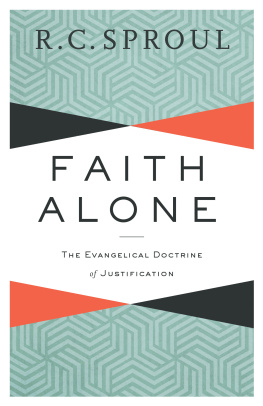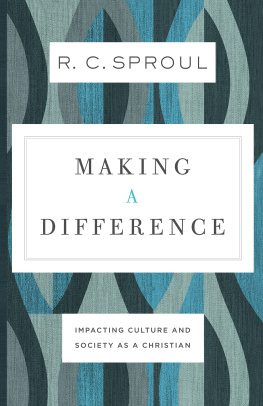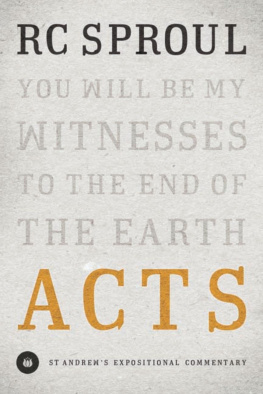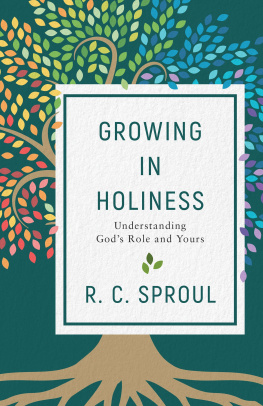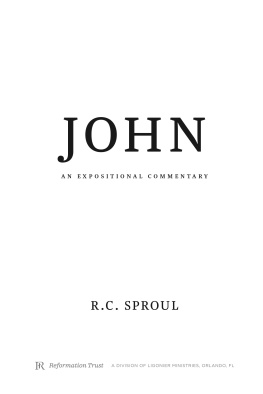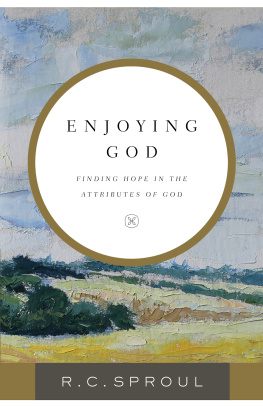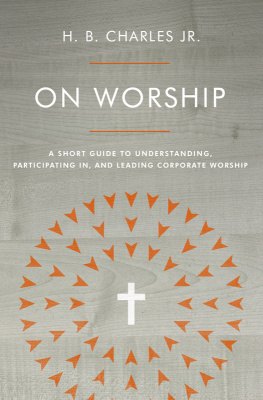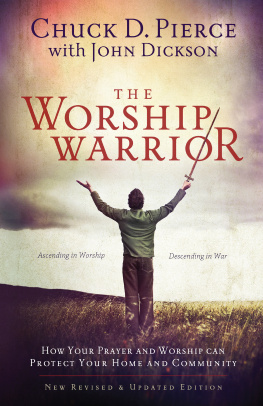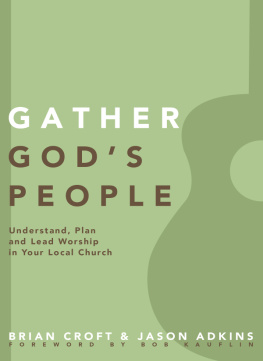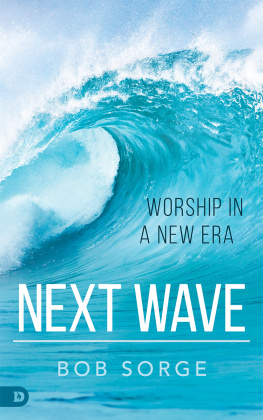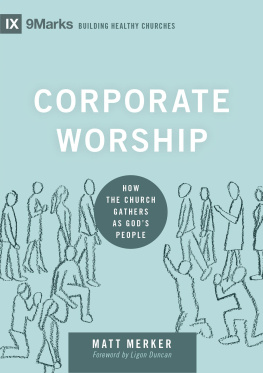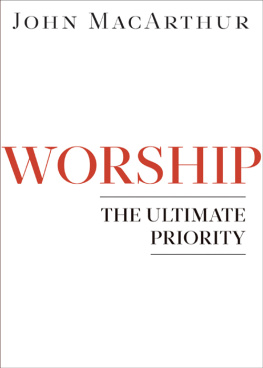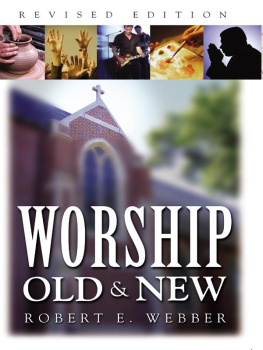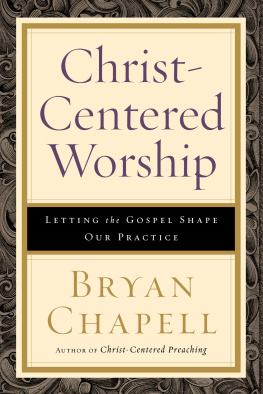CONCLUSION
How then shall we worship? To honor God as God, we must worship Him as He, and He alone, decrees.
No church dare replace the chancel with a stage. Stages are built for performance; chancels are constructed for worship. We must work, and work hard, to remove the shadows we have placed over the glory of God, that Gods people may be renewed by basking in His divine splendor and brilliant glory.
Nothing else will do.
ABOUT THE AUTHOR
Dr. R. C. Sproul is the founder and chairman of Ligonier Ministries, an international Christian education ministry based near Orlando, Florida. He also serves as co-pastor at Saint Andrews, a Reformed congregation in Sanford, Florida, and as the president of Reformation Bible College. His teaching can be heard on the daily radio program Renewing Your Mind.
During his distinguished academic career, Dr. Sproul helped train leaders for the ministry as a professor at several theological seminaries.
He is the author of more than eighty books, including The Holiness of God, The Work of Christ, Chosen by God, The Invisible Hand, Gods Love, The Truth of the Cross, and Pleasing God. He also served as general editor of The Reformation Study Bible and has written several childrens books, including The Princes Poison Cup.
Dr. Sproul and his wife, Vesta, make their home in Longwood, Florida.
STUDY GUIDE
CHAPTER 1
INTRODUCTION
We face a crisis of worship in the church. For decades we have sought to make worship feel more enjoyable and relevant, but many people still find it boring. One useful way to pursue truth about a subject is to dig down and look at the foundation upon which everything else is built. In seeking to find God-ordained principles for worship, the foundation is the form of worship laid out in the Bible. While there isnt 100 percent continuity between Old and New Testament worship, there are some extremely valuable things we can learn by looking back at that foundation.
LEARNING OBJECTIVES
1. To be able to explain why form in worship is necessary, and how it differs from formalism.
2. To be able to discuss some continuities between the Old and New Testaments, as well as some discontinuities.
QUOTATIONS
Hypocrites! Well did Isaiah prophesy about you, saying: These people draw near to Me with their mouth, and honor Me with their lips, but their heart is far from Me. And in vain they worship Me.
Matthew 15:79a
Let all things be done decently and in order.
1 Corinthians 14:40
OUTLINE
I. Introduction
A. There is a crisis of worship in the church today.
B. Many people find church boring and irrelevant.
C. The worship battle lines between formal and informal represent a false dilemma, because group worship always has some formthat is, an order or pattern.
D. Therefore, the real question is, What will be the structure, the style, and the content of the liturgy [pattern]?
E. To know whether the form weve chosen is legitimate, we need to search out what God has shown He wants us to do in worship. What pleases God is more important than what excites us.
II. Continuity and Discontinuity between Old and New Testaments
A. Vast portions of the Old Testament describe a practice of worship that God Himself ordained.
B. Much of that Old Testament ritual focused on the sacrificial system, which was fulfilled once and for all in the atonement of Christ.
C. If we insist on total continuity between the testaments, we may slip into the Judaizing heresy and deny the fulfillment of the covenant that Jesus accomplished.
D. However, we must also avoid the opposite error of thinking there is no continuity at all between the testaments.
E. Marcion was a heretic who taught that the God of the New Testament is not the same as the God of the Old Testament. He created an abridged version of the New Testament that left out all connections with the Old.
F. Few people today teach Marcions ideas wholly, but his heresy lives on in the evangelical churchs neglect of the Old Testament.
III. Antinomianism and the Crisis of Morals
A. The neglect of the Old Testament has led to a moral crisis because of pervasive antinomian theology.
B. Antinomian means opposed to the law of God, including the Old Testament law of God.
C. Some Christians think that we are responsible to obey the commands of Christ but that the Old Testament law of God has no relevance to us. This is classic antinomianism.
IV. Crisis of Worship
A. The neglect of the Old Testament has also undermined our worship, because we often behave as if nothing God said about worship in the Old Testament applies today.
B. God did not dictate books like Romans word for word to Paul, but He did dictate to Moses His instructions for the form of Israels worship.
C. Although there are some important discontinuities between Old Testament worship and our own, there are principles in the Old Testament patterns that should inform our own patterns.
V. Form but Not Formalism
A. All corporate worship has a form or pattern, but we must be careful not to let the pursuit of a proper form become an end in itself.
B. At the time of the Reformation, the problem with Roman Catholic worship was not with the form of worship but with formalism , in which the form becomes the end in itself.
C. A related term is externalism , in which the external elements of worship exist but the heart and soul are absent.
D. The Old Testament prophets were reformers but not revolutionaries. They denounced not Israels liturgies but the coldhearted worshippers who went through them by rote.
E. Jesus, too, denounced externalism, not the liturgies God had prescribed.
F. Our goal should be liturgy that is biblical in content and that helps us worship in spirit and in truth.
BIBLE STUDY
1. What do the following texts indicate about the continuities between the Old Testament and Jesus teaching? What do they indicate about the discontinuities?
a. Matthew 5:1220
b. Matthew 5:2124
c. Matthew 22:3440
2. Acts 21:1726 describes Paul participating in the rites in the Jewish temple. What does this tell us about his attitude toward the Old Testament rites? How does 1 Corinthians 9:1923 help us understand Pauls attitude?
3. What can we learn from 1 Corinthians 14:2640 about the order or form of the earliest New Testament worship services? How would Paul respond to the idea that worship should not have a form or pattern?
4. What examples of externalism does Jesus give in Matthew 23? What is His attitude toward externalism? Why does He nevertheless say, Therefore whatever they [the teachers of the law] tell you to observe, that observe and do (Matt. 23:3)?
DISCUSSION GUIDE
1. What is the difference between form and formalism in worship? How do you respond to the idea that even informal worship has a form? Can you give some examples?
2. What are some of the continuities between the Old and New Testaments? What are some of the discontinuities?
3. What today draws some people toward as little structure in worship as possible? What draws other people to highly structured worship?
APPLICATION
1. Participate in a worship service and take note of the style, structure, and content of the service. Afterward, reflect on the ways you believe these elements of the service aided and/or hindered genuine worship of the true God.
2. Thank God that He is the same yesterday, today, and foreverconsistent from Old Testament times until now. How does it help you to know that His character is consistent?
CHAPTER 2
INTRODUCTION
The offering of sacrifice in the temple or tabernacle was the chief element of Old Testament worship. Christ offered Himself as the quintessential sacrifice for sin, so we dont offer animals on an altar in our worship. Yet sacrifice remains central to what worship is about historically, as far back as the time of Cain and Abel. The attitude of the one who offers a sacrifice is crucial. That attitude involves humility and trust in God alone.
Next page

